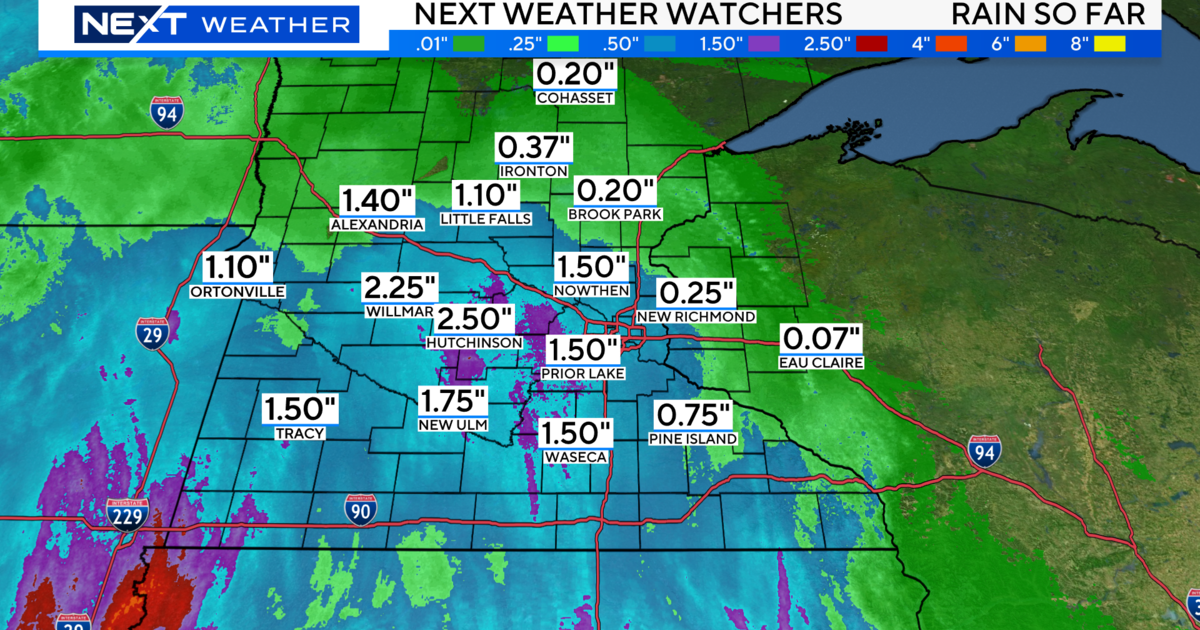Movie Blog: 'Next Look' Q&A With Walker Film Curator
More often than not, it takes at least six months to a year (if not longer) for festival movies to arrive in the Twin Cities, especially given all the titles distributors hold onto until Oscar season kicks into high gear.
However, those curious to see what attendees of this year's Sundance Film Festival won't have to wait so excruciatingly long, thanks to the Walker Art Center. Their new series Next Look begins this weekend with a screening of Dear White People, which the Walker informs has sold out. However, it was a preview screening for a film that will open in theaters this fall. And there are still plenty of tickets still available to all the other films in the series.
I had the chance to talk a bit with the Walker film program's curator Sheryl Mousley about this year's slate. You can see our conversation below.
-------
Eric Henderson: The press notes for this year's Next Look selections mention that each of the films included play "with elements of the dramatic genre." Can you explain what is meant by that?
Sheryl Mousley: The Sundance Film Festival is the gold standard for showcasing emerging independent talents in two categories: Dramatic and Documentary, and I decided to stick with the Dramatic genre for the Walker's series. Sundance is known for taking a forward approach to storytelling and shaping the next wave in American cinema, and I think that's what these highlighted films accomplish. Especially with the festival's Next program, Sundance filmmakers have been provided the freedom and audiences for telling their narratives in novel ways, and bring to light new stories and issues that haven't been explored until now.
Henderson: I noticed one of the films in the lineup -- Obvious Child -- features Saturday Night Live performer Jenny Slate, which reminded me of how Kristen Wiig has notably been stretching her dramatic chops lately. What do you think comedic performers bring specifically to dramatic roles?
Mousley: Hopefully they bring humor to serious storylines. Obvious Child was first a short film with Jenny Slate that was also directed by Gillian Robespierre in 2009. Over four years later it was made into this feature film. During that time Jenny Slate became known for her work on SNL and for comedy. Kristen Wiig became lauded for her work in Bridesmaids, but is known also for SNL. It is great to have the freedom to move back and forth from comedy to TV to feature films.
Henderson: The division of genre is an interesting topic especially in light of TV's current golden age, with shows like Breaking Bad and Orange is the New Black arguably finding great success blurring the lines between traditional lines of comedy and tragedy. Are films falling behind or is TV just catching up?
Mousley: A lot of talented people known for feature films are also working on dramatic TV series. I like that the division isn't as firm as it used to be. As much as I hope people will come into the cinema to see films with an audience, together in a dark room, many people also watch films at home. Movies are seen side by side with series like Breaking Bad and Orange is the New Black, House of Cards or many of the British dramas. I wonder if the TV series will change the pacing of features. Films are still running mostly around 90 minutes with a basic five-act structure that brings the audience to a conclusion and TV serials give us about 50 minutes with a chance to stop at a dramatic moment, re-up for another installment or binge into the wee hours of the morning.
Henderson: Dear White People looks like it could raise a few eyebrows, even given the patina of satirical commentary. Do you expect some spirited discussion following that screening?
Mousley: The writer-director of the film Justin Simien, producer Effie Brown, actors Tyler James Williams and Tessa Thompson, and Sundance Film Festival director John Cooper will all be at the screening. There is a lot to talk about with this film. Based on Justin's experiences when he was in college, he will address how he used humor to look at some of the same attitudes about race that remain today. Also, many members of the local cast and crew will be in the audience, so I think there will be discussion about the making of the film in Minneapolis.
Henderson: A few films in the lineup look more traditionally dramatic, such as War Story and Fishing Without Nets. Can you talk a bit about what made you select those films?
Mousley: War Story is about the physical and emotional response to seeing war up close. Rather than a straight line narrative, the audience is holding on with the main character, a photojournalist, as she tries to figure out the aftermath of her trauma that she cannot express, keeping us within her unsettling urgency and mystery. The way the story unfolds, it doesn't give us clear explanations. We wonder where she has been stationed, what happened to her, and only figure out that now in Italy she is trying to understand the destabilizing experience by coping the only way she knows how -- continuing to make photographs.
Fishing Without Nets tells of the Somali experience of fishermen whose nets come up empty, and, when they can't feed their families, have to make difficult economic and ethical choices. With all the attention given to Captain Phillips, this is a good story to tell now. Made with Somali non-actors and filmed in Kenya, the director Cutter Hodierne, wanted to show this side of the story.
Henderson: And who will be in town for these screenings?
Mousley: In addition to the guests at the Dear White People screening, the Walker will be hosting filmmakers from two other films in the series. Cutter Hodierne, the director of Fishing Without Nets, and John Baker, who produced Memphis, will be at the screenings to discuss the films with the audiences.



